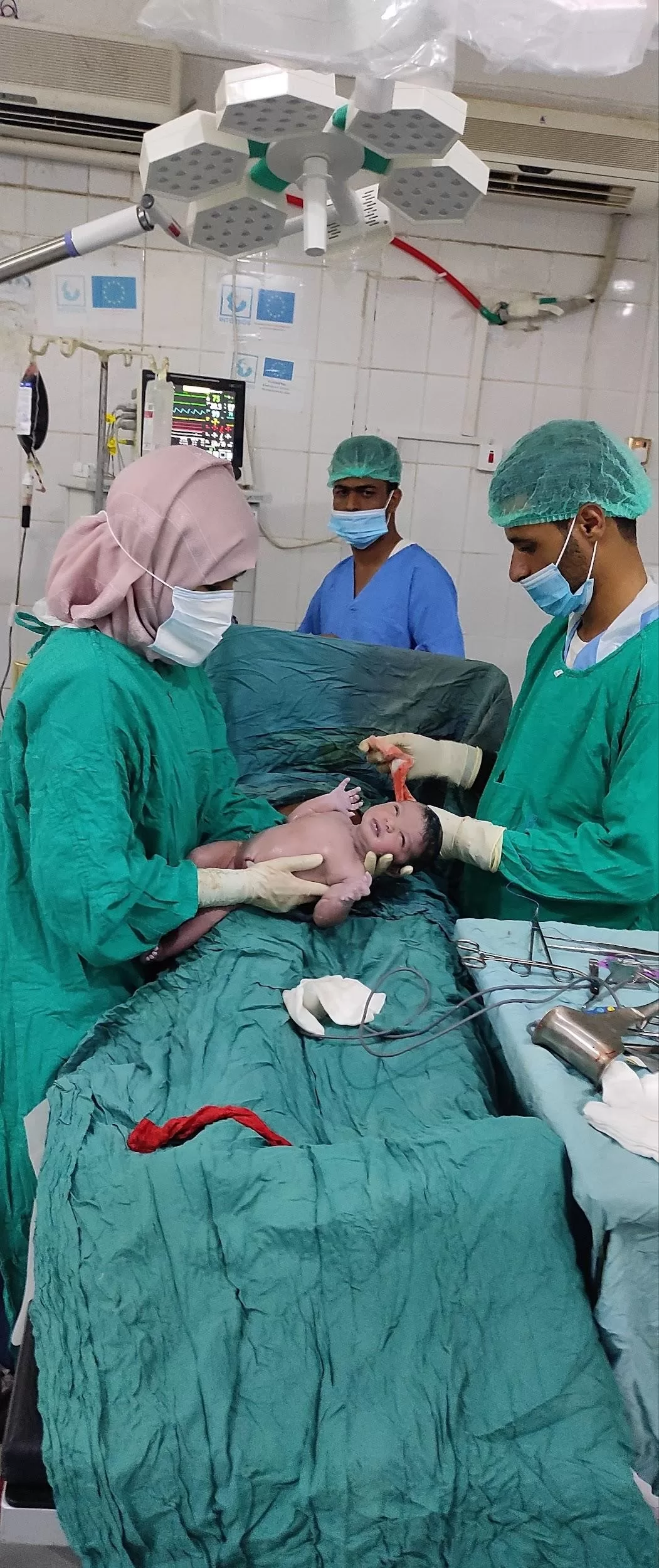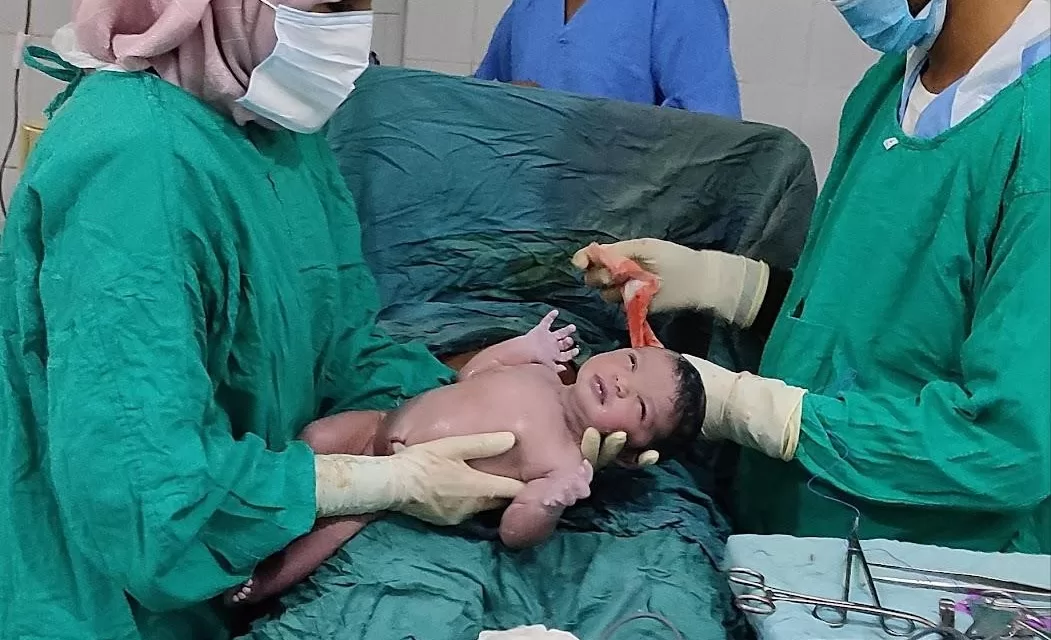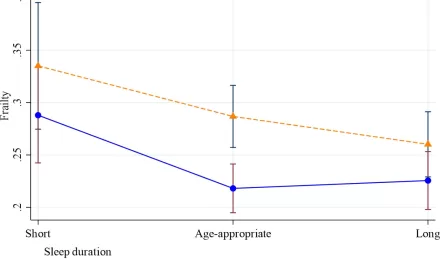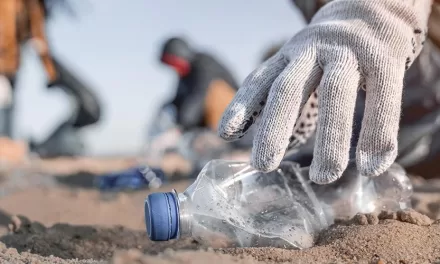
23 March 2023 – For many Yemeni women who are pregnant, breastfeeding and displaced by conflict, hard-to-reach and struggling hospitals are still working to save their lives, and deliver new ones.
When Horia, 37, began experiencing life-threatening complications due to a high-risk pregnancy, she learned that the one health facility near to her village was inadequately staffed and equipped to help her.
Horia’s family urged her to let them take her to the ER of Qafl Shamer hospital in the Qafl Shamer district of Hajjah governorate.
Horia made it to the hospital, she arrived suffering increasingly strong and distressing labour pains.
Upon arrival Horia was immediately attended to by a specialized doctor who is supported by the project. He performed a rapid diagnosis and emergency C-section that delivered a healthy 3 kg baby girl into Horia’s waiting arms.
“Our lives are so difficult now, and the support I received here meant so much to us,” said Horia during a follow-up visit to the hospital.
Qafl Al Sahmer hospital is supported to provide emergency and secondary health care services to some of the most vulnerable, conflict-affected and internally displaced people (IDPs) in Hajja governorate, including supporting 34 emergency staff with incentive payments.
Eight years of armed conflict in Yemen has devastated the country’s health care system to the point that most vulnerable communities, including Horia, lack access to even the most basic and essential services. In Qafl Shamer district of Hajjah governorate where Horia and her family reside, there are nearly 566 000 IDPs, while just over half of all health facilities across the governorate either closed or only partially functioning. For many or most IDPs, living conditions are dire, at best.
In partnership with INTERSOS, and with generous funding from the Government of Germany, WHO is leading the health response in Yemen to protect essential health services for the most vulnerable and their communities and responding to the health consequences of the conflict and severe economic downturn.
Specialized health interventions managed by WHO with INTERSOS aim to support women like Horia, those facing increased risk of death and severe complications during childbirth due to a lack of access to essential health care.
WHO’s partnership with INTERSOS dates to 2018, and is continuing to strengthen essential health services while improving their availability to most vulnerable persons, through the Minimum Services Package (MSP), a health service delivery mechanism which focuses on 8 priority health care services, targeting health facilities at the district level.
To date, the health of over 13 500 Yemeni people has been supported through WHO’s partnership with INTERSOS, including 3200 vulnerable and at-risk women and around 8000 children.












